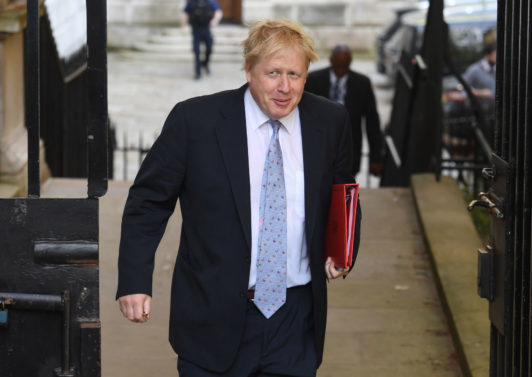 Prime Minister Boris Johnson
Prime Minister Boris Johnson
The Conservatives have pledged £9.2 billion to improve the energy efficiency of homes, schools and hospitals, as they make a pitch to voters concerned about the environment.
Funding will include £6.3 billion to install energy saving measures to cut bills in 2.2 million homes, with a focus on social housing and people in fuel poverty, the Tories say.
The plans are part of efforts to meet the legal target to cut greenhouse gas emissions to zero overall by 2050 to tackle climate change.
The target is a less ambitious goal than other parties have set out, with the Lib Dems promising net zero emissions by 2045 and Labour pledging to deliver the substantial majority of greenhouse cuts by 2030.
But the 2050 net zero target, which became law in the summer, is backed by the Government’s advisory Committee on Climate Change as feasible – though the committee has warned the UK is off track to meet existing carbon-cutting goals in the 2020s and 2030s.
The manifesto seeks to highlight a different approach to tackling climate and environment crises from Labour, saying the Tories believe “free markets, innovation and prosperity can protect the planet”.
It pledges to work with the market to deliver two million jobs in clean growth in a decade.
The Tories say their first Budget will prioritise the environment, with funding for research and development, cutting carbon and an extra £4 billion for flood defences, as well as a national plug-in network for electric vehicle charging and a “gigafactory” for building the batteries those cars will need.
After bringing in a moratorium on fracking following tremors in Lancashire where the controversial process was taking place, the Tories also say they “will not support fracking unless the science shows categorically it can be done safely”.
And there is support for a range of clean technologies, including for 40 gigawatts of offshore wind by 2030 – a significant increase on the 30 gigawatts set out with the industry in a sector deal earlier this year.







